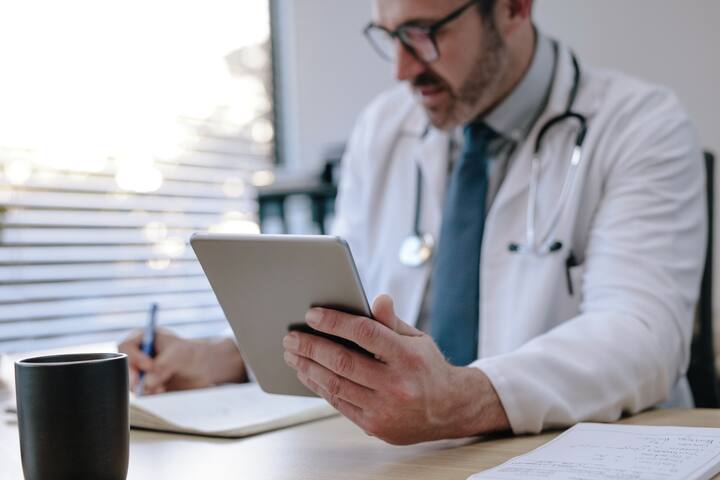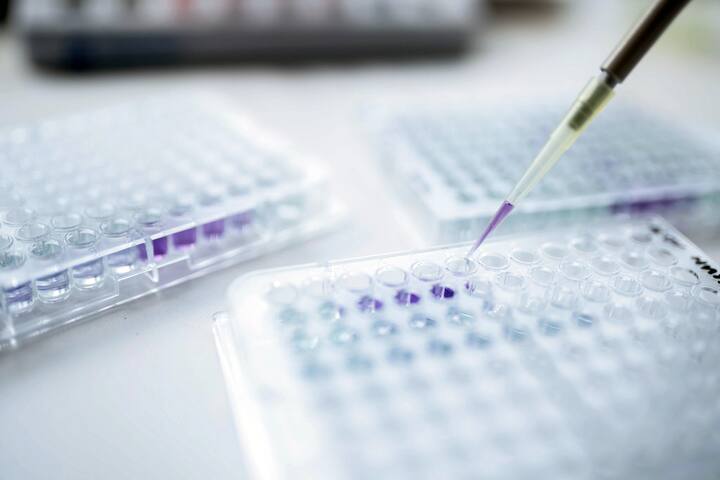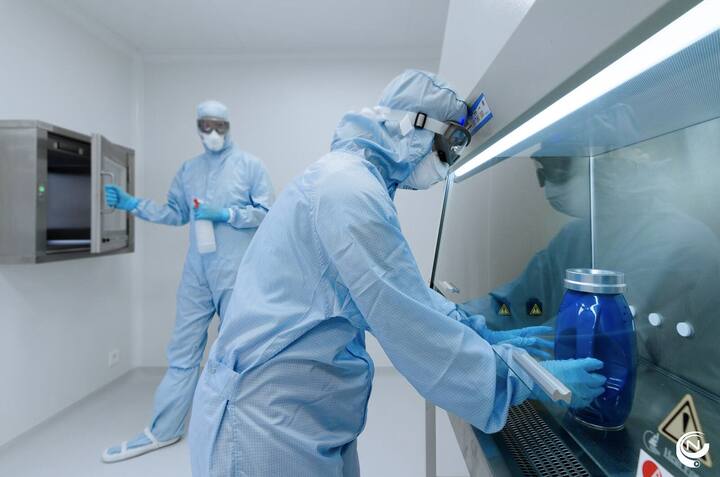
The New Regulations for Hospitals and their Pharmacies
In the pharmaceutical industry, strict guidelines have been followed for decades. The primary goal of these regulations is to ensure patient safety. However, beyond the pharmaceutical industry, there are other environments where products for patients are prepared — such as community pharmacies, clinical laboratories, and hospitals. In these settings too, regulations are becoming increasingly stringent, and operations are subject to tighter controls. These regulatory frameworks are gradually aligning more and more with those of the pharmaceutical industry — a domain in which Normec Advipro has been building its expertise for nearly 20 years.
A significant milestone for healthcare institutions (including hospitals) came on September 30, 2020, when a Royal Decree was signed concerning “the preparation and dispensing of medicines and the use and distribution of medical devices within healthcare institutions” (published on December 24, 2020). In this comprehensive decree, the Federal Agency for Medicines and Health Products (FAMHP) outlines a range of requirements for hospital pharmacists and the operation of their pharmacies. The primary objective is to ensure the safety and quality of medicines and medical devices by providing high-quality services. Initially, the most impactful provisions were scheduled to take effect by January 1, 2023, but at the end of 2021, this deadline was extended to January 1, 2026.
General Principles and Guidelines
The first annex, General Principles and Guidelines, provides, firstly, further clarification on the overall quality system that must be established by the hospital pharmacist-in-charge. Secondly, it outlines several structural provisions, such as the organisation of work, hygiene and clothing regulations, facilities, and equipment. Thirdly, it describes the various sequential phases of the pharmaceutical process from procurement and central storage to medication preparation and the follow-up of medication use. Fourthly, it addresses the traceability of pharmaceutical products. And finally, it covers the outsourcing of the preparation and fractioning of medicinal products, as well as the sterilisation of reusable medical devices.

Reusable Medical Devices
The second annex focuses on reusable medical devices and is divided into two parts to maintain clarity and structure. Annex IIa covers Good Practices for the Sterilisation of Reusable Medical Devices. It outlines, among other things, the practical organisation of the sterilisation process, as well as the cleaning and disinfection of reusable medical devices prior to sterilisation. Additionally, the annex provides a detailed explanation of the conditioning of these devices — for example, their packaging and labelling. Finally, it offers further clarifications regarding storage conditions, the handling of loan sets, and the traceability of medical devices. Annex IIb specifically addresses Good Practices for the Maintenance of Flexible Heat-Sensitive Endoscopic Equipment and Infection Prevention. This type of flexible endoscopic equipment is routinely used to visualise the respiratory tract, heart, digestive system, and urinary tract. In addition to these diagnostic purposes, flexible endoscopic equipment is increasingly being used for therapeutic and even surgical procedures. Similar to Annex IIa, Annex IIb describes the cleaning and disinfection procedures and explains the necessary quality assurance measures and control processes.

PIC/S Guide
Finally, we have the third annex: the PIC/S Guide to Good Practices for the Preparation of Medicinal Products in Healthcare Establishments. With the publication of the new Royal Decree, it is confirmed that pharmacy preparations must comply with this PIC/S standard dated March 1, 2014, no later than January 1, 2026. This standard outlines:
how a quality assurance system should be structured;
how staff should behave and operate;
that buildings and equipment must be appropriate for the intended activities;
good documentation practices;
how to ensure quality during production activities;
quality control for product release;
the outsourcing of activities;
handling complaints and product recalls;
conducting internal audits.
This third annex also goes into more detail regarding three specific types of preparation:
The preparation of sterile products
The preparation of non-sterile liquids, creams, and ointments
The preparation of radiopharmaceuticals in healthcare settings
Normec Advipro’s expertise extends across many of these domains. We are specialists sterilisation validation for various processes. Not only do we have deep expertise, but we also operate with state-of-the-art test equipment to carry out these validation studies. Moreover, we stand out in our cleanroom expertise. This ranges from developing documentation and protocols, or providing templates (such as User Requirements Specifications (URS),risk analyses, and validation and qualification documents), to the execution of these protocols by our Mobile Validation Experts (MoVE)— equipped with the latest testing technologies. And if you need a Project Manager to guide your transition towards this new regulation, Normec Advipro is the partner you can rely on.
Cleanroom Support through the CLeanroom IMplementation Blueprint (CLIMB)
Ready for the future?
Is your organisation ready for the future of pharmaceutical and high-tech manufacturing? For many hospitals, laboratories, start-ups, and other organisations, building and validating a cleanroom in compliance with (new) regulations can be a significant leap into the unknown, often lacking specific expertise.
By partnering with Normec Advipro, you gain access to targeted expertise and support to successfully navigate your cleanroom project. Ensuring quality during the implementation of changes and improvements in an innovative and validated production environment is crucial. This contributes to improved long-term cost efficiency, as every decision can impact the final commissioning.
Through this accumulated experience, Advipro has developed its own CLIMB (Cleanroom Implementation Blueprint), designed to advise and support cleanroom project teams throughout the entire journey, with corresponding deliverables.
More about Normec Advipro

Normec Advipro
Lille Belgique
Vous souhaitez créer un environnement de travail et de vie sûr et sain ?